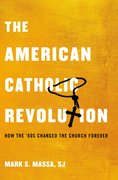Frantz Fanon: Third world revolutionary
By Martin Evans
Frantz Fanon died of leukaemia on 6 December 1961 at the National Institutes of Health in Bethesda, Maryland, USA where he had sought treatment for his cancer. At Fanon’s request, his body was returned to Algeria and buried with full military honours by the Algerian National Army of Liberation, shortly after the publication of his most influential work, The Wretched of the Earth.















